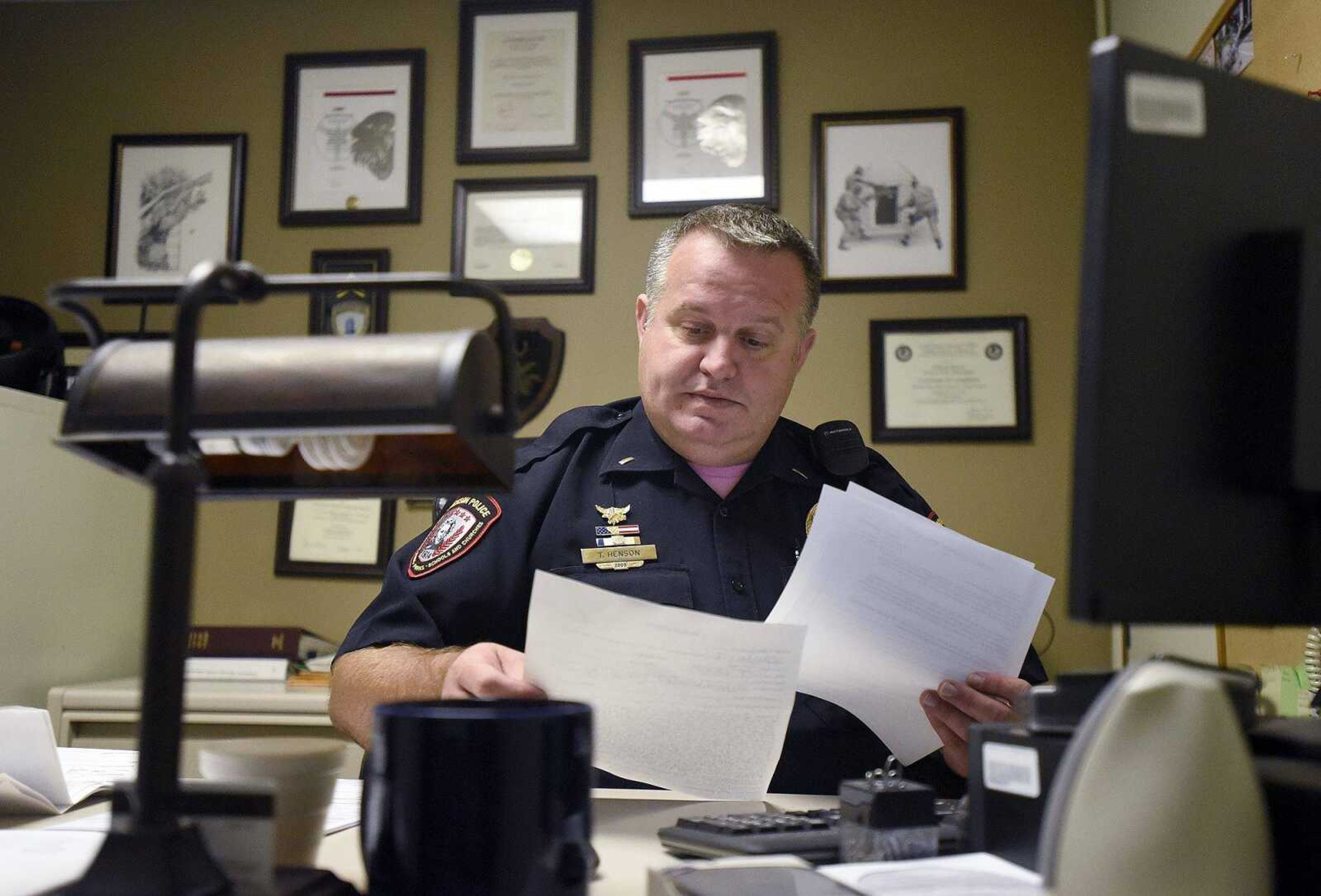Jackson may need help from state lawmakers to fund fire, police projects
In December, the Jackson Board of Aldermen approved an $8 million plan to build a new police station and renovate the existing fire station. Since then, city officials been hashing out ways to try to pay for the improvements. Jackson officials will need help from the state legislature if they are to implement a public safety tax -- their preferred source of funding...
In December, the Jackson Board of Aldermen approved an $8 million plan to build a new police station and renovate the existing fire station.
Since then, city officials been hashing out ways to try to pay for the improvements.
Jackson officials will need help from the state legislature if they are to implement a public safety tax -- their preferred source of funding.
Mark Grimm, a lawyer with St. Louis firm Gilmore and Bell P.C., told the board during its most recent meeting there are "two options, essentially," when it comes to funding the project.
The first and most accessible to the city would be a capital-improvement sales tax. Its funds could be used for the construction and maintenance of the new facilities.
Revenue from the tax could not, however, be used to pay for any other associated costs such as salaries for new police officers the city intends to hire at some point in the future to staff the new station.
City administrator Jim Roach said Monday while the facilities upgrade and funding plan remains in the early stages, the city has recognized adding police officers as a priority to keep pace with Jackson's growing population.
"Personnel is one of the big issues," he said. "According to the police department, we're down two to four officers short."
Grimm said the city's best option to generate funds that also could go toward officer salaries would be to implement a public-safety tax.
Jackson, however, is ineligible to do that because its population doesn't fall within one of the strictly tailored population ranges articulated in Missouri law that grants the authority to do so.
Lawmakers would have to alter the wording of the statute to include a city of Jackson's size and designation as a fourth-class city.
But Grimm told the board changing the statute shouldn't be as difficult as it may appear.
Missouri law, he said, in theory prevents legislators from granting the authority to establish a public-safety sales tax to a specific town. In practice, however, lawmakers sometimes skirt that restriction by granting the authority to "any city" that falls within certain parameters while defining those parameters narrowly enough to apply only to a particular city.
For example, one of the five existing subsections grants authority to "any city of the fourth classification with more than 8,900 but fewer than 9,000 inhabitants."
The current draft of Jackson's clause would apply to fourth-class cities with populations between 10,000 and 20,000. Those margins are wider than the others, but Grimm told the board such legislation typically is passed as a courtesy between lawmakers and Jackson's would withstand scrutiny if someone were to challenge it.
"Chief Humphreys has had some discussions with Senator [Wayne] Wallingford and Representative [Donna] Lichtenegger," Roach said. "Between the two of them, they'll have it introduced, this potential change."
But that will be months in the future at least. If the legislature assents, the issue will go before voters, Roach said, and the soonest it likely would be implemented would be fall 2017.
Roach also said the public-service sales tax and the capital-improvement sales tax both could be set at up to a half-cent. But it will be one or the other, not both, he said.
"If [the public safety sales tax] doesn't pass through the legislature, I guess we would have to fall back and decide put capital improvement tax on the local ballot and see if that passes," Roach said.
The board is expected to pass a resolution requesting lawmakers to introduce the legislation during its next meeting Oct. 17.
tgraef@semissourian.com
(573) 388-3627
Connect with the Southeast Missourian Newsroom:
For corrections to this story or other insights for the editor, click here. To submit a letter to the editor, click here. To learn about the Southeast Missourian’s AI Policy, click here.










